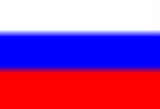
Sergei Chetverikov
Encyclopedia
Sergei Sergeevich Chetverikov (Сергей Сергеевич Четвериков, 1880-1959) was one of the early contributors to the development of the field of genetics
. His research showed how early genetic theories applied to natural populations, and has therefore contributed towards the modern synthesis of evolutionary theory
.
Between the two World Wars
, Soviet
biological research managed to connect genetics with field research on natural populations. Chetverikov lead a team at the Nikolai Koltsov
Institute of Experimental Biology in Moscow, and in 1926 produced what should have been one of the landmark papers of the modern evolutionary synthesis
. However, published only in Russian, it was largely ignored in the English-speaking world (though J.B.S. Haldane possessed a translation).
Chetverikov influenced several Russian geneticists who later came to work in the West, such as Theodosius Dobzhansky
and Timofeev-Ressovsky, both of whom continued to work in a similar style. The significance of Chetverikov's work came to light much later, by which time the evolutionary synthesis was virtually complete.
He was arrested by OGPU in 1929 and sent to exile to Yekaterinburg
for five years. He later moved to Nizhny Novgorod
and organized the Department of Genetics at Gorky University. He was dismissed from his post at the behest of Lysenko
in 1948 .
Genetics
Genetics , a discipline of biology, is the science of genes, heredity, and variation in living organisms....
. His research showed how early genetic theories applied to natural populations, and has therefore contributed towards the modern synthesis of evolutionary theory
Modern evolutionary synthesis
The modern evolutionary synthesis is a union of ideas from several biological specialties which provides a widely accepted account of evolution...
.
Between the two World Wars
Interwar period
Interwar period can refer to any period between two wars. The Interbellum is understood to be the period between the end of the Great War or First World War and the beginning of the Second World War in Europe....
, Soviet
Soviet Union
The Soviet Union , officially the Union of Soviet Socialist Republics , was a constitutionally socialist state that existed in Eurasia between 1922 and 1991....
biological research managed to connect genetics with field research on natural populations. Chetverikov lead a team at the Nikolai Koltsov
Nikolai Koltsov
Nikolai Konstantinovich Koltsov was a Russian biologist. He was one of the creators of modern genetics. Nikolai Koltsov was a teacher of Nikolay Timofeeff-Ressovsky.-Scientific career:...
Institute of Experimental Biology in Moscow, and in 1926 produced what should have been one of the landmark papers of the modern evolutionary synthesis
Modern evolutionary synthesis
The modern evolutionary synthesis is a union of ideas from several biological specialties which provides a widely accepted account of evolution...
. However, published only in Russian, it was largely ignored in the English-speaking world (though J.B.S. Haldane possessed a translation).
Chetverikov influenced several Russian geneticists who later came to work in the West, such as Theodosius Dobzhansky
Theodosius Dobzhansky
Theodosius Grygorovych Dobzhansky ForMemRS was a prominent geneticist and evolutionary biologist, and a central figure in the field of evolutionary biology for his work in shaping the unifying modern evolutionary synthesis...
and Timofeev-Ressovsky, both of whom continued to work in a similar style. The significance of Chetverikov's work came to light much later, by which time the evolutionary synthesis was virtually complete.
He was arrested by OGPU in 1929 and sent to exile to Yekaterinburg
Yekaterinburg
Yekaterinburg is a major city in the central part of Russia, the administrative center of Sverdlovsk Oblast. Situated on the eastern side of the Ural mountain range, it is the main industrial and cultural center of the Urals Federal District with a population of 1,350,136 , making it Russia's...
for five years. He later moved to Nizhny Novgorod
Nizhny Novgorod
Nizhny Novgorod , colloquially shortened to Nizhny, is, with the population of 1,250,615, the fifth largest city in Russia, ranking after Moscow, St. Petersburg, Novosibirsk, and Yekaterinburg...
and organized the Department of Genetics at Gorky University. He was dismissed from his post at the behest of Lysenko
Trofim Lysenko
Trofim Denisovich Lysenko was a Soviet agronomist of Ukrainian origin, who was director of Soviet biology under Joseph Stalin. Lysenko rejected Mendelian genetics in favor of the hybridization theories of Russian horticulturist Ivan Vladimirovich Michurin, and adopted them into a powerful...
in 1948 .

